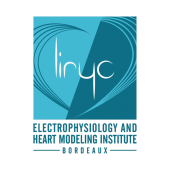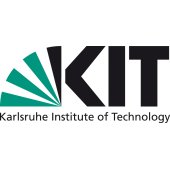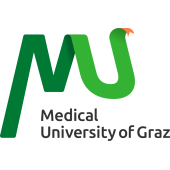What is openCARP?
openCARP is an open cardiac electrophysiology simulator for in-silico experiments. Its source code is public and the software is freely available for academic purposes. openCARP is easy to use and offers single cell as well as multiscale simulations from ion channel to organ level. Additionally, openCARP includes a wide variety of functions for pre- and post-processing of data as well as visualization. The python-based CARPutils framework enables the user to develop and share simulation pipelines, i.e. automating in-silico experiments including all modeling/simulation steps.
Search the openCARP web page and documentation:
Getting started
New to cardiac electrophysiological modeling or openCARP? This is the place to go first!
About
General information about the software as well as the people and processes behind openCARP
Download
Find the software, installation guides and the license here as well as the proper work to cite when you use openCARP results in a publication
Documentation
Need an openCARP introduction, training or documentation? Find it here along with our question & answer system
Community
Everything you need to interact with the openCARP community
News
PEERP 2.0 - Reentry induction reloaded
Azzolin et al. introduced the idea of 'pacing at the end of the refractory period' (PEERP) in 2021 as described in the corresponding paper. In the following, we provide a more technical description how PEERP is peerping and introduce a couple of improvements.
In the original PEERP implementatio...
openCARP online user meeting: December 8 4-5pm CET
openCARP Online User Meeting – Bundle Feature & Marketplace
📅 December 8, 2025 | 4–5 pm CET; Registration
We’re excited to invite you to our next openCARP online User Meeting!
This session will focus on the experiment bundle feature and the upcoming bundle marketplace — a new way to make your c...
7th openCARP user meeting: Registration open
The 7th openCARP user meeting will be held from March 3-5 2026 in Bordeaux, France. Find preliminary details on the meeting page. Registration is now open and is limited to 50 people. Come join and meet the community!
User Meeting
The 7th openCARP workshop will take place from March 3-5 2026 in Bordeaux, France. Registration is open until February 10. Further information about the openCARP workshops and the registration process can be found in the section openCARP user meeting. Stay informed and subscribe to our newsletter!
Quick facts
To ensure input compatibility with CARP/CARPentry allowing to reproduce a larger number of published studies, the user interface of openCARP has been designed to be backwards compatible, thus facilitating the re-use and replication of a large number of previous studies and carefully crafted in silico experiments. The underlying code basis has been redeveloped from scratch. As this software is a community project, you are welcome to contribute.
Our aim is to increase the productivity in our research field. We believe that you should invest your time in actually solving a scientific problem (rather than spending your precious time developing yet another simulator). With openCARP, you can import CellML-based EP models to avoid error-prone and time-demanding manual implementation. Additionally, we will offer the service to upload in silico experiments (based on CARPutils) of your published studies to share it with your colleagues for a more transparent and better reproducable cardiac modeling research.
The openCARP collaboration
The implementation of openCARP builds on two decades of experience gained from the proprietary predecessors, the Cardiac Arrhythmia Research Package (CARP) developed by Ed Vigmond and Gernot Plank and acCELLerate developed by Gunnar Seemann and Axel Loewe. Both simulators have been used in 100+ scientific studies. Gunnar Seemann (Freiburg, Germany) and Axel Loewe (Karlsruhe, Germany) received funding from the German Research Foundation (DFG) to develop a sustainable cardiac simulator. They asked Ed Vigmond (Bordeaux, France) and Gernot Plank (Graz, Austria) to join forces which they agreed to in March 2018. Since then, we have been developing openCARP and have released the first version in March 2020. Beside the four group leaders, the core developer Aurel Neic from NumeriCor joined the openCARP steering committee in November 2019. Currently, openCARP is supported by CARPe-diem and MICROCARD, a project that has received funding from the European High-Performance Computing Joint Undertaking EuroHPC (JU) under grant agreement No 955495. The JU receives support from the European Union’s Horizon 2020 research and innovation programme and France, Italy, Germany, Austria, Norway, Switzerland.
Attribution
If you use this software, please cite the paper describing it as below. Specific versions of the software can additionally be referenced using individual DOIs. When presenting work based on openCARP, we suggest to display our logo.
Gernot Plank*, Axel Loewe*, Aurel Neic* et al. The openCARP Simulation Environment for Cardiac Electrophysiology. Computer Methods and Programs in Biomedicine 2021;208:106223. doi:10.1016/j.cmpb.2021.106223
@article{openCARP-paper,
author = {Plank*, Gernot and Loewe*, Axel and Neic*, Aurel and Augustin, Christoph and Huang, Yung-Lin (Cary) and Gsell, Matthias and Karabelas, Elias and Nothstein, Mark and Sánchez, Jorge and Prassl, Anton and Seemann*, Gunnar and Vigmond*, Ed},
title = {The {openCARP} Simulation Environment for Cardiac Electrophysiology},
journal = {Computer Methods and Programs in Biomedicine},
year = {2021},
pages = {106223},
volume = {208},
doi = {10.1016/j.cmpb.2021.106223}
}
@software{openCARP-sw,
author = {{openCARP consortium} and Augustin, Christoph and Boyle, Patrick M. and Chegini, Fatemeh and Colin, Raphaël and Huppé, Atoli and Gerach, Tobias and Gsell, Matthias and Houillon, Marie and Huang, Yung-Lin (Cary) and Huppé, Atoli and Hustad, Kristian Gregorius and Karabelas, Elias and Krauß, Jonathan and Linder, Moritz and Loechner, Vincent and Loewe, Axel and Myklebust, Lena and Neic, Aurel and Nothstein, Mark and Plank, Gernot and Prassl, Anton and Sánchez, Jorge and Seemann, Gunnar and Stary, Tomas and Thangamani, Arun and Tippmann, Nico and Trevisan Jost, Tiago and Vigmond, Ed and Wülfers, Eike Moritz and Linder, Moritz and Barrios Espinosa, Cristian and Appel, Stephanie},
title = {{openCARP}},
year = {2025},
doi = {10.35097/jynwqwhfftap7cvv},
version = {v18.1},
license = {ACADEMIC PUBLIC LICENSE (openCARP, v1.1)},
url = {https://git.opencarp.org/openCARP/openCARP}
}



